John Adams / Letter to Thomas Jefferson, August 24, 1815“As to the history of the Revolution, my Ideas may be peculiar, perhaps Singular. What do We mean by the Revolution? The War? That was no part of the Revolution. It was only an Effect and Consequence of it. The Revolution was in the Minds of the People, and this was effected, from 1760 to 1775, in the course of fifteen Years before a drop of blood was drawn at Lexington.”
Today, July 4, marks the 249th birthday of the United States of America. That puts America 365 days from the big 250, a pretty good run for something as temporary-sounding as the “American Experiment.” In light of this, The Dispatch is launching a year-long series of essays on that experiment and how it’s going two-and-a-half centuries in. I’m honored to offer the first course in this feast.
I thought we should start by making a very basic, though sadly controversial, point: The American Revolution was a really big deal.
Though I of course have an abiding love and gratitude for this country, I don’t mean that merely as a patriotic pronouncement; one could be a bitter critic of the United States and make the same claim. Indeed, most strains of anti-Americanism hold that America is a significant force for ill in the world, so of course its founding is a big deal—in a bad way. (Nearly two decades ago, I debated the proposition, “This House regrets the founding of The United States of America” at the Oxford Union. My opponents would agree with me that the American Revolution was a really big deal. They’d just add an “alas.”)
The birth of the United States of America was not merely the most important geopolitical event since the fall of Rome, or the most important intentional political event ever (Rome’s fall wasn’t exactly a planned-out exercise). It was the signature catalyst for the real-world realization of various Enlightenment principles like democracy, human rights, free speech, and representative government. The unfolding success of that experiment over the subsequent two-and-a-half centuries—with America becoming the single most influential and powerful country in the world—lends even more weight to the momentousness of the American Founding. And it certainly ranks among the most consequential events in all of human history, political and non-political alike.
I suspect most people, including many detractors and minimizers of the American Revolution, can agree on much of this. What they have a harder time conceding is that the American Revolution was cool. For good and ill, Western culture associates rebellion and revolution with heroism, romantic sacrifice, edginess, and even glamor. From James Dean’s Rebel Without a Cause to Che Guevara T-shirts and Vladimir Lenin posters, revolution is popularly perceived as transgressive, anti-bourgeois, or punk rock. But the American rebels wore powdered wigs, spoke funny, and were earnest to the point of nerdiness about things like taxes and trade. That stuff isn’t cool, and even worse, neither are the people who tend to unapologetically celebrate the American Founding today—at least according to the arbiters of cool.
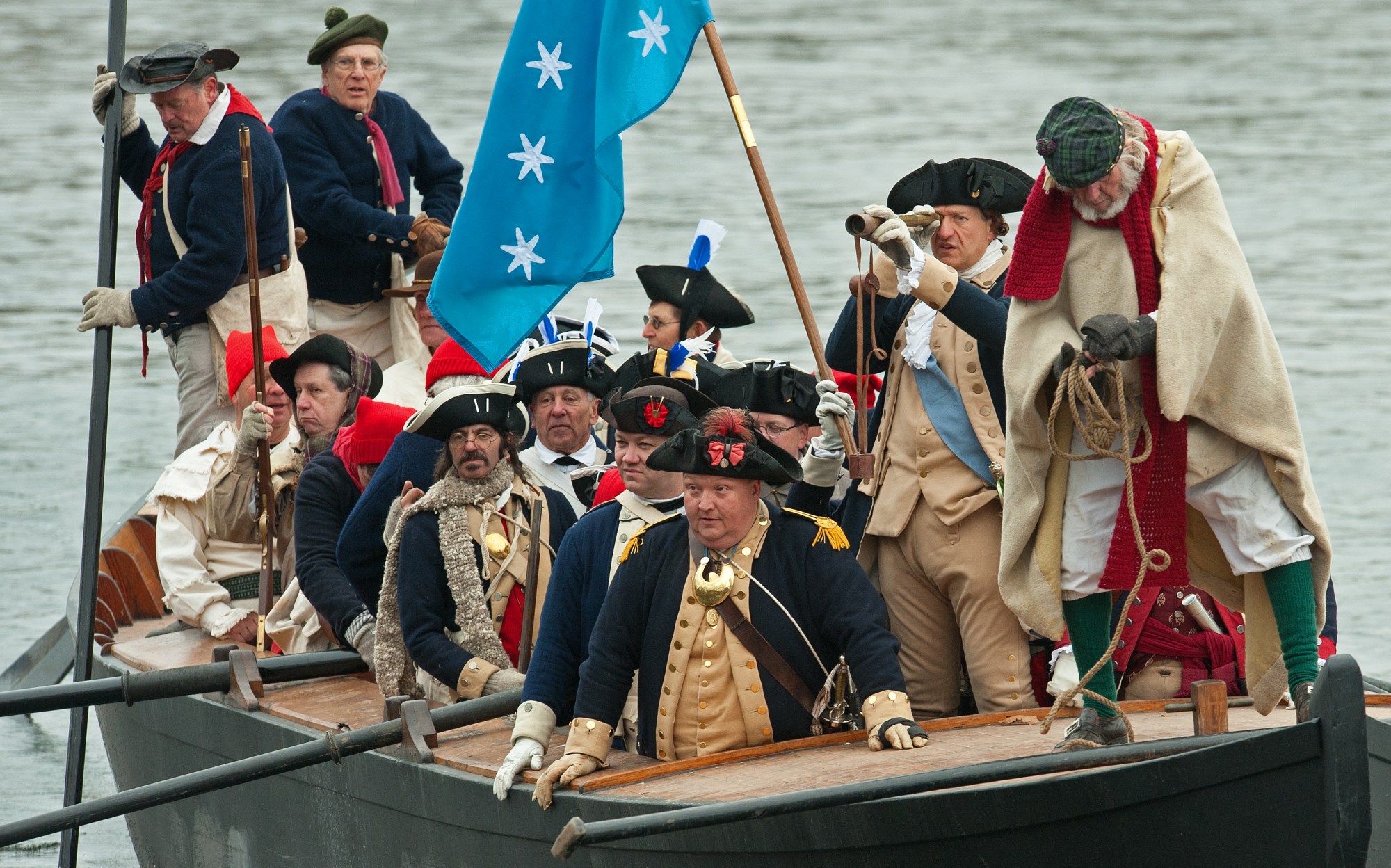
A more legitimately damning fact about the American Revolution was that many of its leaders were slaveholders, and even the ones who opposed slavery compromised their beliefs in our founding charter(s). I don’t want to minimize the role of slavery as a reason for ambivalence or hostility to the Founding; that will be a focus of future essays in this series. But at the same time, slavery was widespread prior to the American Founding. The principles of equality enshrined in the Declaration of Independence undermined the institution—as Abraham Lincoln, Barack Obama, Martin Luther King Jr., and countless others have recognized—even if the Constitution shamefully extended it for too long. In other words, the hypocrisy of America’s Founding with regard to slavery put a clock on the deplorable practice as the country rectified its error. That, too, is worth celebrating.
Sadly, the American Revolution has been dumbed down in the minds of too many people today as either an overhyped and “rather grubby contest about taxes,” or an unforgiveably insincere fight for freedom and equality—for white men only.
This erasure is tragically unfair. If you think radicalism, revolution, and rebellion are cool, or that moving the wheel of history toward human rights, equality, democracy, and representative government is a worthy cause, then you should recognize that the American Revolution was what got the party started. If you think economic progress and economic freedom are not only moral goods unto themselves but inextricably linked and mutually reinforcing, then the American Revolution was arguably the greatest thing to ever happen for material progress and human liberation from poverty.
And yet for nearly two centuries, the fact that the American Revolution was an authentically radical and revolutionary event has been whitewashed, erased, belittled, and mocked. Why? Because for those who feel intellectual or moral ownership over what some call “the revolutionary tradition,” the American Revolution doesn’t count. Since those American colonists did not seek to transform all social relations and construct a utopian society, the American Revolution has been downgraded to an intra-British bourgeoisie squabble.
“Even if you hate America, the Fourth of July recognizes your profoundly radical right to say so.”
Even popular historians I greatly admire have bought into the idea that the American Revolution wasn’t really a revolution at all. One can forgive such decidedly English historians as Thomas Holland and Dominic Sandbrook for harboring some bitterness toward the ungrateful North American colonists and their humiliation of the British Empire, but to fawn over the importance of the failed French Revolution while dismissing the significance of the American Revolution smacks of putting the interests of intellectuals and romantics ahead of the historical facts. I am a massive fan of Holland and Sandbrook’s The Rest is History podcast, but they occasionally fall short of the mark when they turn their gaze on America. In an early episode on the French Revolution, for example, Holland insisted that the French Revolution is “massively” more important than the American Revolution because it introduced concepts of left and right, as well as progress and reaction, into global politics. When Holland noted that there is no evidence of any major French revolutionaries quoting the Declaration of Independence, Sandbrook added, “Yeah, but that’s because I think the American Revolution wasn’t seen beyond America as a revolution.”
Indeed, in her book On Revolution, political philosopher Hannah Arendt went so far as to assert that “neither the spirit of [the American Revolution] nor the thoughtful and erudite political theories of the Founding Fathers had much noticeable impact upon the European continent is a fact beyond dispute.”
I dispute this, and so does the historical record.
Far from being a mere preface or sideshow to intellectual ferment and political upheavals in Europe, the American Revolution is the event that transformed the Enlightenment from an abstract intellectual exercise into, in George Washington’s words, a real-world, tangible “experiment.” Because all ideas have long histories and pre-histories, we can trace the roots of the American Revolution to previous societies and events—from Ancient Greece and Rome (the wellsprings of democratic and republican theory) to the Glorious Revolution (which limited royal authority and elevated the power and legitimacy of parliament)—but the truth is that the American Revolution was less a continuation of existing trends and more a culmination of them. It summoned ideas and aspirations into the political realm and translated abstractions into actions. Sentiments were hardened into structures, and temporary principles became permanent commitments.
Just as a matter of geopolitics, America’s break with the British Empire was a huge deal—and would have been so even if the liberated colonists simply reinvented the 18th-century British system on American soil, naming George Washington king of “New Britain.” But they did not do that. As Yuval Levin put it in the introduction to the American Enterprise Institute’s own indispensable series on America’s 250th birthday, “The American Revolution was essentially the first successful colonial revolt in the known history of humanity. And the colonists chose to announce their rebellion by declaring a set of universal truths about humanity and then rooting their new nation in those bold assertions. It was an even bigger moment than the Declaration claimed.”
To the uninitiated, the claim that the American Revolution marked the beginning of the revolutionary tradition may seem unremarkable. It came first, after all, preceding the French Revolution by more than a decade. But for generations of historians, modernity begins not with Lexington and Concord but with the storming of the Bastille. Indeed, the progenitors and popularizers of the very concept of a revolutionary tradition—especially as promoted by Marxist and/or Francophile historians like Eric Hobsbawm, Francois Furet, and Georges Lefebvre—insist on starting the clock of modernity in Europe. The phrase “the long 19th century,” popularized by Hobsbawm (but tellingly coined by a Soviet historian), begins with the French Revolution in 1789 and ends with the onset of World War I, which led to the Bolshevik Revolution—itself an exercise in Jacobin cosplay. In the fashionable historical narrative, the American Revolution and the Declaration of Independence are considered the last gasps of the Old World of monarchy, aristocracy, and primogeniture rather than the most significant and successful overturning of such Ancien Régime concepts.
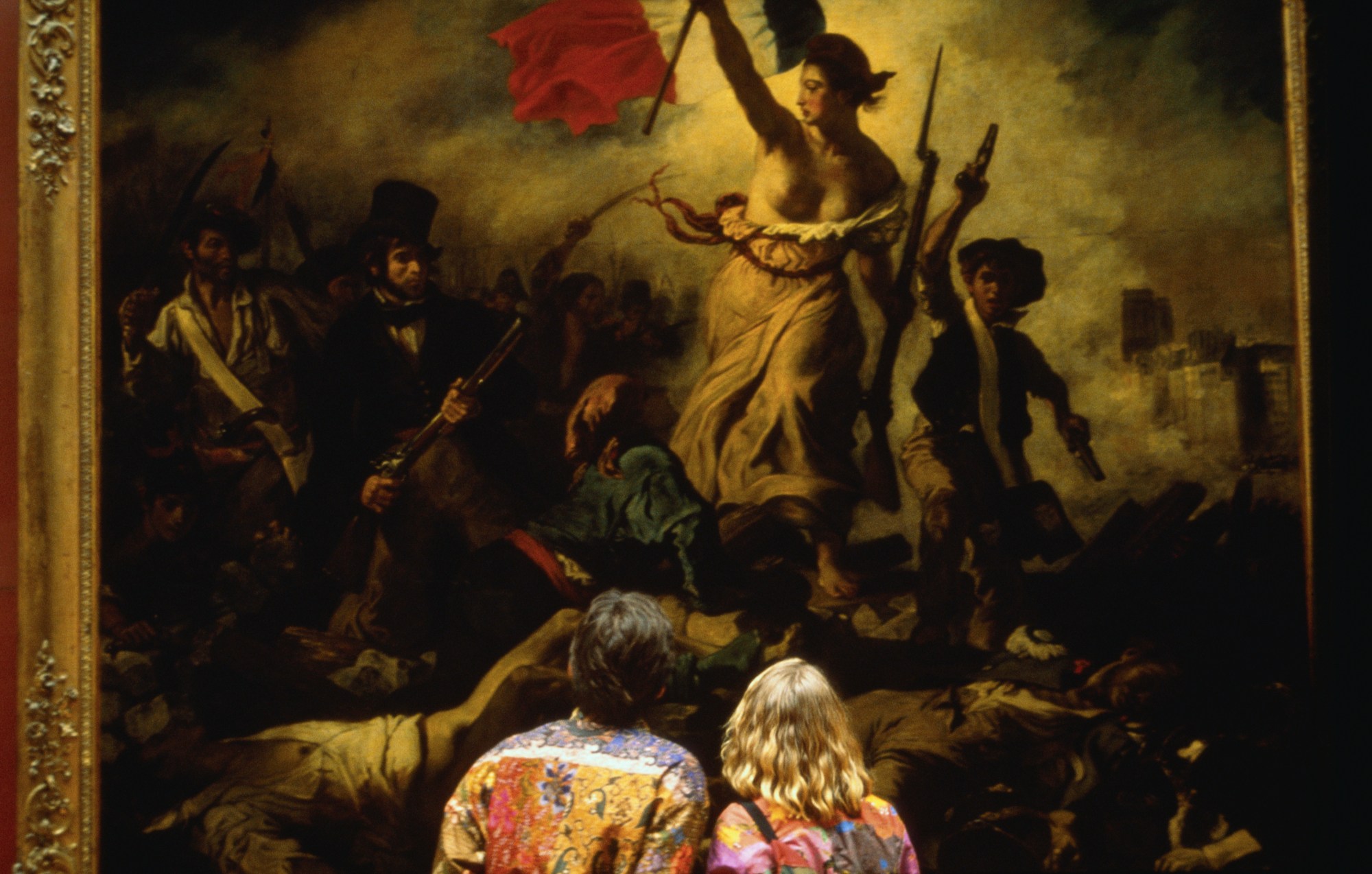
The bias in favor of the French Revolution is, first and foremost, ideological and emotional. To intellectuals, the French Revolution was cool, in large part due to intellectuals’ tendency to care more about ideas than reality. It worked great in theory, but came up short in practice, ultimately failing on its own—and increasingly grandiose—terms. It did not eradicate privilege, poverty, inequality, or any of the other sins the political “left” associates with the “right.” Indeed, this tragic failure is what gave it its romantic allure. The American Revolution, on the other hand, is denigrated precisely because it was successful, as Irving Kristol noted in his address on the 200th anniversary of the Declaration.
But let’s get to the facts. You know who considered the American Revolution a massively significant revolution? French revolutionaries.
Consider Tom Holland’s dog that didn’t bark.
It’s true, French radicals did not go around quoting the Declaration of Independence. But that’s because they were pushing the Declaration of the Rights of Man and Citizen, a French knock-off of the American Declaration, drafted by the heroic Americanist and former aide to Gen. George Washington, the Marquis de Lafayette—who also had considerable editorial assistance from a fellow named Thomas Jefferson. Lafayette explicitly sought to translate the principles of the American Declaration of Independence and the Virginia Declaration of Rights into the French context. Abbe Sieyès and Honoré Mirabeau crafted the final draft of the French Declaration, and Sieyès, an irreligious radical Catholic priest, had little to say about America. But that makes him more of an exception to the rule among the early French revolutionaries.
Mirabeau, however, was a close friend of Benjamin Franklin and deeply influenced by the American Revolution, which he called the “most astonishing of all revolutions.” Nicolas de Condorcet, who would become one of the most important intellectual leaders of the French Revolution (before possibly being murdered by Jacobins), wrote in his The Influence of the American Revolution in Europe (De l’influence de la Révolution d’Amérique sur l’Europe):
It is not enough for these rights to be written in the books of philosophers and in the hearts of men, ignorant or weak men must be able to read them in the example of a great people. America has given us this example. Its Declaration of Independence is a simple and sublime exposition of these rights, so sacred and so long forgotten. No nation has known them so well or preserved them with such perfect integrity. … The example of a great people among whom the rights of man are respected is useful to all others despite differences in climate, manners, and constitution. It shows that these rights are everywhere the same.
As the great historian of the French Revolution, Simon Schama, wrote, “For France, without any question, the Revolution began in America.”
Jonathan Israel writes in his book, The Expanding Blaze: How the American Revolution Ignited the World, of the leaders of the “positive phase” of the French Revolution, when high-minded philosophes and patriotic liberals “concerned with promoting democratic republicanism and freedom of expression and the press, underpinned by universal and equal rights, stressed not just the American origins of the democratic French Revolution and its essential ideological principles but also the power of those universal principles to encompass the Western world.” Jacques Pierre Brissot, leader of the French political faction known as the Girondins, insisted in 1789 that “the American Revolution gave birth to ours,” adding that “ours will without doubt revolutionize the whole of Europe.”
But I’ve spent too much time on the intellectuals and, frankly, the French. The American Revolution was viewed as a staggeringly revolutionary event throughout Europe. After news of the “shot heard round the world” reached England, for example, The London Evening Post reported that “the prevailing toast in every company of true Englishmen is, ‘Victory to the Americans, and re-establishment to the British Constitution.’” Danish Foreign Minister Andreas Peter Bernstorff wrote to a friend, “The public here is extremely occupied with the rebels [in America], not because they know the cause, but because the mania of independence in reality has infected all the spirits, and the poison has spread imperceptibly from the works of the philosophes all the way out to the village schools.”
News about the American Revolution was heavily censored in many German states, forcing support for the American cause underground, where it was discussed in newly formed secret societies of rebels and freethinkers. In Paris, a Spanish ambassador warned that, although “this federal republic is born a pigmy, a day will come when it will be a giant, even a colossus.” Its chief threat, he added, came from the introduction of a revolutionary ideology on a vast continent far from European influence. “Liberty of conscience, the facility for establishing a new population on immense lands, as well as the advantages of the new government, will draw thither farmers and artisans from all nations,” the ambassador wrote. “In a few years we shall watch with grief the tyrannical existence of this same colossus.”
In Italy, Holland, Belgium, Spain, and Denmark (or in the principalities and city-states that were later subsumed by them), the American Revolution was hailed as the beginning of a new age. European newspapers reprinted the Declaration of Independence along with the new state constitutions, particularly Pennsylvania’s radically democratic charter. Gaetano Filangieri, a Neapolitan political theorist whose work was banned by the pope, was one of the most influential radicals of the Enlightenment. Filangieri, Israel wrote, viewed “the American Revolution as the commencement of a generalized revolt against all despotism, oligarchy, and colonial oppression, and the hierarchical character of Old World society generally.” He was so smitten with the state of Pennsylvania, in fact, that he told Franklin in 1782 that he would like to settle in that “refuge of virtue” and “country of heroes.”
“The effects of the American Revolution, as a revolution, were imponderable but very great,” the historian Robert Roswell Palmer wrote. “It inspired the sense of a new era. It added a new content to the conception of progress. It gave a whole new dimension to ideas of liberty and equality made familiar by the Enlightenment. It got people into the habit of thinking more concretely about political questions, and made them more readily critical of their own governments and society. It dethroned England, and set up America, as a model for those seeking a better world. It brought written constitutions, declarations of rights, and constituent conventions into the realm of the possible.”
As Robert Kagan documented in his indispensable book Dangerous Nation, the American Revolution served not only as an inspiration for those seeking to throw off the yoke of the old order, but also as an existential threat to those seeking to conserve that old order. “If this flood of evil doctrines and pernicious examples should extend over the whole of America,” Klemens von Metternich, the famous foreign minister of the Austrian Empire, asked, “what would become … of the moral force of our governments, and of that conservative system which has saved Europe from complete dissolution?” According to Kagan, the Venetian ambassador in Paris predicted that, if the new American confederation held together, “it is reasonable to expect that, with the favorable effects of time, and of European arts and sciences, it will become the most formidable power in the world.”
Few would end up denying the prediction that America would become the most formidable power in the world, but many ended up denying America’s revolutionary influence and importance. Why?
In the half-century after the French Revolution flamed out, what we would today call “the left” formed two broad, often overlapping factions, often referred to as the moderate and radical wings of the Enlightenment. Another way to understand these factions might be the “liberals”—as in the champions of liberal democracy or constitutional liberalism—and the socialists, or later Marxists. The moderate or liberal wing was primarily concerned with answering the “political question,” while the radical or socialist wing was more interested in solving what was widely called “the social question,” an omnibus term addressing how all of society should be organized.
Those fixated on the political question sought liberal or republican government. Constitutions, the rule of law, free(er) trade, property rights, and representative government. Those fixated on the “social question” sought to ameliorate or erase all hierarchies and privileges; to resolve inequality, poverty, and all forms of “injustice.”
These were not necessarily two distinct camps, but rather opposite ends of a spectrum that, in many ways, mirrored the famous seating arrangements in the French National Assembly, from which we derive the categories of “left” and “right.” Prior to the Revolutions of 1848, what united these two factions most was that they were not “conservative,” which in Europe still meant defending the status quo of monarchy, clericalism, and empire. As Friedrich Hayek observed, “until the rise of socialism,” the opposite of conservatism was “liberalism.”
Karl Marx’s Communist Manifesto was published in 1848, at which point the “classical liberals” began to be seen as denizens of the right. The full story is too lengthy and complicated to explore in detail here, but suffice to say that the swelling ranks of the middle classes, as well as many revolutionary liberals—including the handful of French ones who survived the Terror—feared a replay of the French Revolution almost as much as the rulers did. This created a schism on “the left,” in which the liberals and well-to-do people in various countries contented themselves with modest reforms and compromises—a constitution here, a legal reform there—in lieu of a wholesale campaign of regicide and radicalism. The liberals who couldn’t accept the deal fled—or were exiled—to the United States of America, among other places, where their supposedly revolutionary dreams were considered more like a conventional fact of everyday life.
In other words, the liberals in Europe were relegated out of the “revolutionary tradition” for lack of revolutionary ardor.
While Arendt was wrong about the influence of American ideas and ideals on European politics, she was correct that the French revolutionary tradition became defined by its approach to the “social question.” Its heirs and imitators rejected limitations on state power, because state power—and the political will to do what was “necessary”—came to define revolutionary commitment. That is what modern Jacobins, from Vladimir Lenin to Mao Zedong, admired about the French Revolution. And while the modern American left should not be painted with the same brush, the obsession with permanently resolving the “social question” still justifies a role for the state at odds with the American political tradition. New York City’s Democratic Party just nominated for mayor a man who likes to talk about “seizing the means of production.”
Those sorts of remedies lie outside of America’s revolutionary tradition, because that tradition—our tradition—was centered on limiting state power, not marshaling it for social transformations. The Founders’ answer to the political question can be found the Declaration of Independence, which we celebrate today: “We hold these truths to be self-evident, that all men are created equal, that they are endowed by their Creator with certain unalienable Rights, that among these are Life, Liberty and the pursuit of Happiness. That to secure these rights, Governments are instituted among Men, deriving their just powers from the consent of the governed.”
The American vision has a high degree of tolerance for inequality and a robust commitment to individual liberty, because in the American revolutionary tradition, the pursuit of happiness is an individual right, while in the French revolutionary tradition, the pursuit of happiness is an obligation of the state to impose collectively.
This difference is everything, not least because it helps explain the success of the American Revolution. The Founders took human nature into account in their nation-building project, creating a system of checks and balances that constructively built on our natural tendency to form factions and to disagree on what constitutes happiness. The French revolutionary tradition is the totalitarian tradition, because it assumes that the state, run by the right people, can dictate what happiness is for society as a whole, and therefore has license to transform not just society, but our souls.
So yes, the American Revolution was a really big deal, and all of the would-be revolutionaries who seek to cosplay the Jacobins or Bolsheviks while denigrating the American experiment reveal their profound ingratitude. Not only do they ignore the material prosperity that makes their radicalism possible, they forget that the freedom to peacefully call for revolution of any sort is a freedom created by the American tradition. Before the shot heard ‘round the world, the response to even rhetorical revolutionaries and other foes of the status quo was prison, excommunication, and/or summary execution. For this reason alone, even the most ungrateful detractors of the American Revolution should offer a modicum of praise and appreciation for the liberal and radical revolution wrought by the Founders.
Even if you hate America, the Fourth of July recognizes your profoundly radical right to say so.
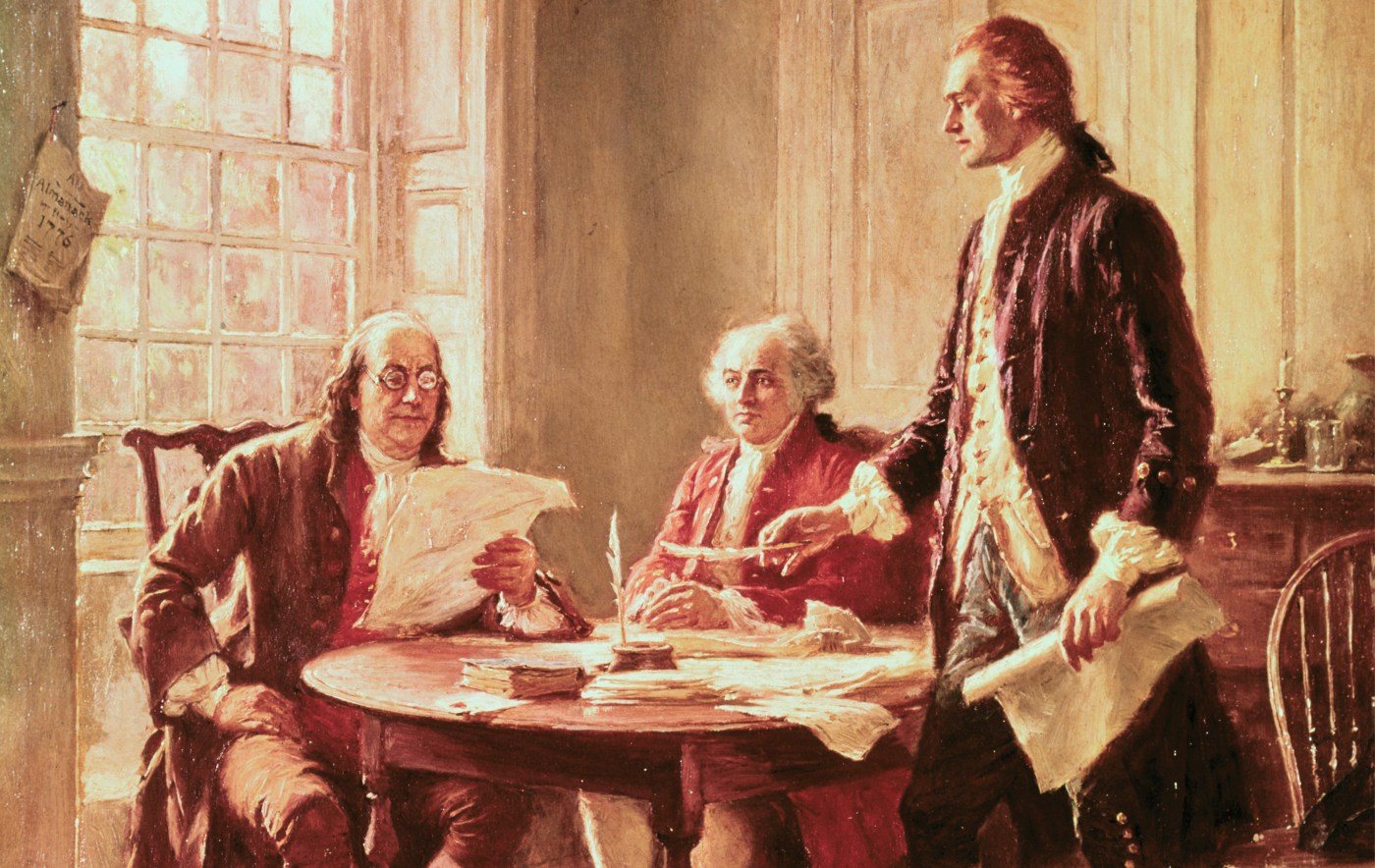

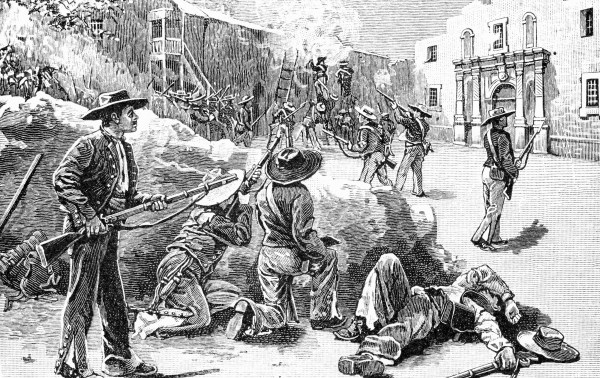
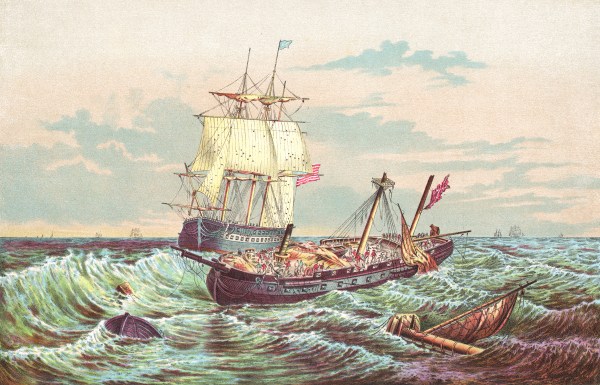
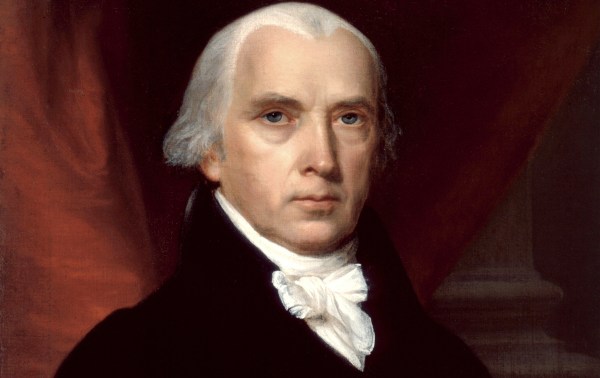
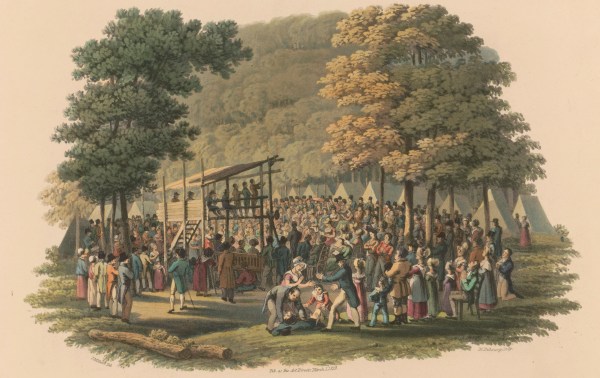
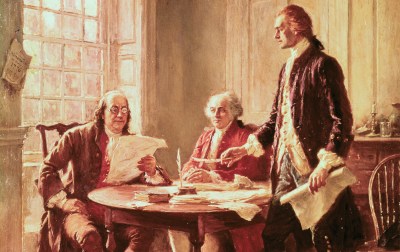
Please note that we at The Dispatch hold ourselves, our work, and our commenters to a higher standard than other places on the internet. We welcome comments that foster genuine debate or discussion—including comments critical of us or our work—but responses that include ad hominem attacks on fellow Dispatch members or are intended to stoke fear and anger may be moderated.
With your membership, you only have the ability to comment on The Morning Dispatch articles. Consider upgrading to join the conversation everywhere.